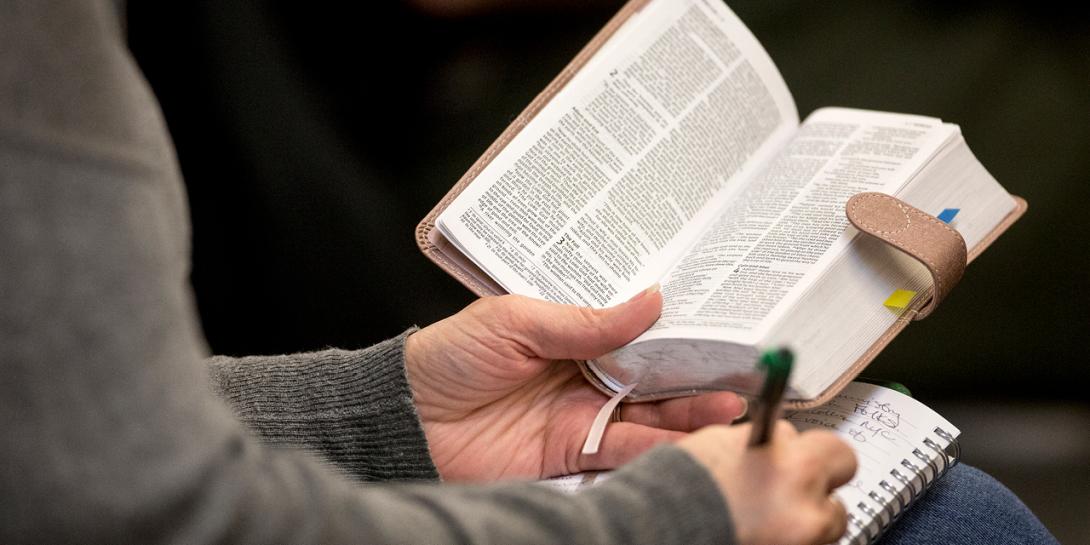Finding One Mind (Philippians 2)
Our position in Christ calls and obligates us to have the mind of Christ, to be as selfless as he was for the sake of and service to others.
Imitating Christ (Philippians 2)
The “mind of Christ” is powerfully portrayed for us in his humiliation and in receiving the name above all names as the one to be worshiped. We will give him this worship by coming to His Table.
All Nature Sings
A look at what the psalms have to say about creation’s unique capacity for praise, as well as the psalms’ implicit critique of any attempt to stifle creation’s song.
My God, My God, Why?
A look at the Psalms of Lament.
From Sin to Trust
A service plan based on Psalms
Singing Our Way Through the Bible's Prayerbook
This article explores prayer and the book of Psalms.
Coop's Column - No Mother Half So Mild
Since both God and humans are personal, we humans can grow both in knowledge of and intimacy with God. In fact, we must grow. For to love God more and more requires that we learn more and more about God.
Together in the Word
A look at Bible Studies and the power of scripture when looking at it together.
Enjoying the Bible
There's a lot of talk about the Bible—especially those "unincluded" books—but not so much reading of the included books. N.T. Wright speaks about how to enjoy this gift to humankind and make sense of some charges against it.
Coop's Column - Craving to be Adored
The longer I live, the more I become convinced three things are true: 1. God does exist 2. I am not God. 3. The first two points are worth remembering—always.” Wise words from an aged Roman Catholic priest. How easy to slip into the sin of what St. Paul terms “thinking too highly of ourselves.”
Reading Scripture in Public Worship
In all of our worship planning the principle that the Word of God is central must guide us. Since worship is our engagement with God, our group conversation with God, the Word must figure prominently.
Affirmations and Professions (Bible Study)
One significant element of worship renewal in our generation is that congregations are finding their voices. Previously, most worshipers were silent in worship, except when they participated in congregational singing. Increasingly, worshipers use their voices in worship for spoken expressions in addition to songs.



